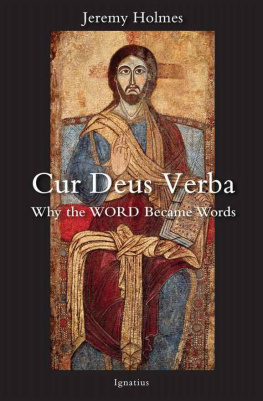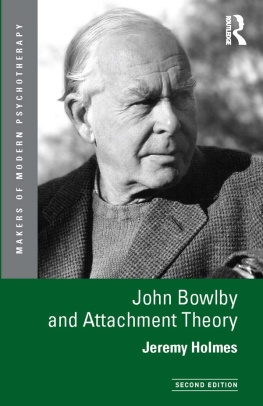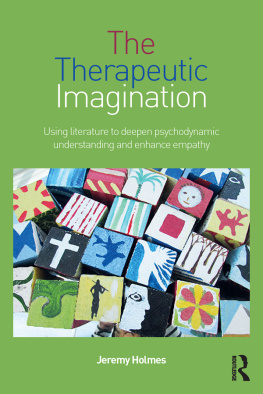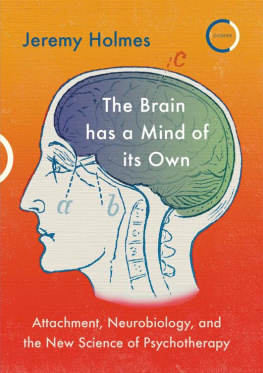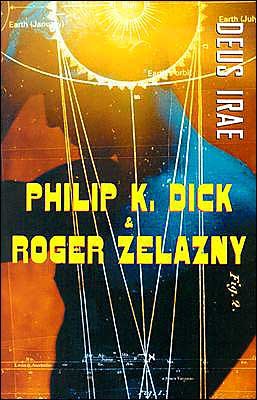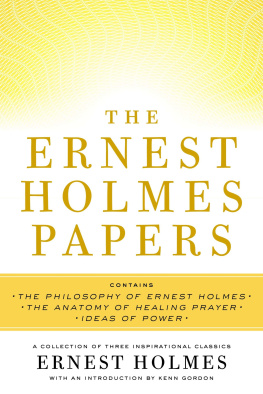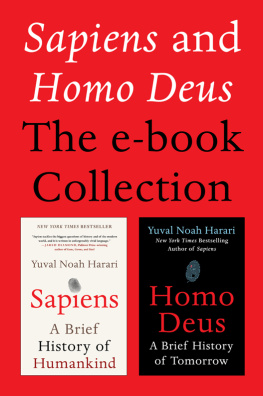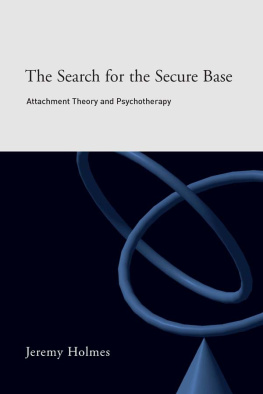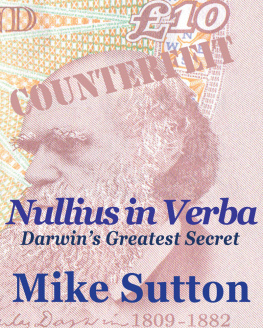Jeremy Holmes - Cur Deus Verba: Why the Word Became Words
Here you can read online Jeremy Holmes - Cur Deus Verba: Why the Word Became Words full text of the book (entire story) in english for free. Download pdf and epub, get meaning, cover and reviews about this ebook. year: 2021, publisher: Ignatius Pr, genre: Religion. Description of the work, (preface) as well as reviews are available. Best literature library LitArk.com created for fans of good reading and offers a wide selection of genres:
Romance novel
Science fiction
Adventure
Detective
Science
History
Home and family
Prose
Art
Politics
Computer
Non-fiction
Religion
Business
Children
Humor
Choose a favorite category and find really read worthwhile books. Enjoy immersion in the world of imagination, feel the emotions of the characters or learn something new for yourself, make an fascinating discovery.
- Book:Cur Deus Verba: Why the Word Became Words
- Author:
- Publisher:Ignatius Pr
- Genre:
- Year:2021
- Rating:3 / 5
- Favourites:Add to favourites
- Your mark:
- 60
- 1
- 2
- 3
- 4
- 5
Cur Deus Verba: Why the Word Became Words: summary, description and annotation
We offer to read an annotation, description, summary or preface (depends on what the author of the book "Cur Deus Verba: Why the Word Became Words" wrote himself). If you haven't found the necessary information about the book — write in the comments, we will try to find it.
Cur Deus Verba: Why the Word Became Words — read online for free the complete book (whole text) full work
Below is the text of the book, divided by pages. System saving the place of the last page read, allows you to conveniently read the book "Cur Deus Verba: Why the Word Became Words" online for free, without having to search again every time where you left off. Put a bookmark, and you can go to the page where you finished reading at any time.
Font size:
Interval:
Bookmark:
CUR DEUS VERBA
JEREMY HOLMES
IGNATIUS PRESS SAN FRANCISCO
Unless otherwise indicated, Scripture quotations are from the Revised Standard Version of the BibleSecond Catholic Edition (Ignatius Edition) copyright 2006 National Council of the Churches of Christ in the United States of America. All rights reserved worldwide.
Unless otherwise indicated, all translations of papal and council documents have been taken from the Vatican website.
Cover art:
Salvatore Benedicente (c. 1207)
Cathedral of Santa Maria Assunta, Sutri, Italy
Scala / Art Resource, New York
Cover design by Roxanne Mei Lum
2021 by Ignatius Press, San Francisco
All rights reserved
ISBN 978-1-62164-421-7 (PB)
ISBN 978-1-64229-161-2 (eBook)
Library of Congress Control Number 2020946493
Printed in the United States of America
A. The Goodness of God
B. The Son
C. The Holy Spirit
D. Creations Reflection of the Trinity
A. The Incarnation
B. God Creates in Order to Give Himself
C. God Wants His Creatures to Be True Causes
D. Creation Comes from God as a Reflection of Him
E. The Fathers Impulse of Love toward the Son
F. The Creatures Return to God
G. Christ the Head of Creation
H. Christ the Perfect Man
I. Conclusion
A. Society
B. What Scripture Is
C. Conclusion: The Rules of Faith and Charity
A. True Causes of Revelation
B. Inspiration
C. Gods Causation
D. Re-Imagining the Human Authors
A. Participation
B. Christ the Cause of Israel
C. Shadow, Image, Substance
D. Three Kinds of Participation
E. Participation and the Authors of Scripture
A. Distinguishing Literal from Spiritual
B. Further Precision
C. Conclusion: The Integrity of the Old Testament
A. Recapitulation
B. Rising Conflict
C. Relation of Spiritual and Literal Senses
D. Divisions of the Spiritual Sense
E. Conclusion: The Use of the Spiritual Sense
A. Time and Eternity
B. Memory and Event
C. Event and Narrative
D. Storytellers
E. The Literal Sense of Scripture
F. Conclusion
A. The Four Gospels
B. Genesis 1-11
C. Bringing Together Antiquity and Modernity
A. Why There Are Difficulties in Scripture
B. How God Writes the Difficult Passages
C. Examples of Difficult Passages
D. Dangers in the Difficulties
E. Allegorization of Difficult Passages
A. The Problem of Subjectivity
B. The Enduring Tradition of Subjectivity
C. Scriptures Invitation to Subjectivity
D. The Value of Subjectivity
E. Degrees and Limits of Subjectivity
A. The Old Testament and the Heart of Jesus
B. The New Testament and the Heart of Jesus
When the Nestorian heresy threatened to undermine the truth of the Incarnation, Cyril of Alexandria grounded the orthodox faith with one simple argument, borrowed from Athanasius: the purpose of the Incarnation was our salvation, and no mere man could save us. Christ had to be true God and true man. When Eutyches took Cyrils more difficult teachings too far and proposed a single nature in Christ, Pope Saint Leo the Great returned to Cyrils central point: the purpose of the Incarnation was our salvation, and the savior had to be a true member of our race. In different centuries, and in response to different errors, the Church has repeatedly asked the question Saint Anselm would phrase so memorably: Cur Deus homo ? Why did God become man?
The Churchs faith about the Incarnate Word parallels her faith that Scripture is both truly the words of men and truly the words of God. In a vivid poem, the prophet Baruch describes Gods wisdom as desperately needed by men but as dwelling far from them. The giants of old perished for lack of her; no one has gone up into heaven and taken her or gone over the sea and found her. But God found the whole way to wisdom, Baruch says, and afterward she appeared upon earth and lived among men (Bar 3:37). The Christian draws in a sudden breathcould this be the Incarnation of Gods Word and Wisdom, drawn out in plain terms in the Old Testament? But Baruch continues: She is the book of the commandments of God (Bar 4:1). The closest the Old Testament comes to saying that the Word became flesh and dwelt among us (Jn 1:14) is a panegyric on Scripture.
The parallel has not been lost on the Christian tradition. Ignatius of Antioch says that We must go to Scripture as to the flesh of Christ. Origen says similarly, Just as this spoken word cannot according to its own nature be touched or seen, but when written in a book and, so to speak, become bodily, then indeed is seen and touched, so too is it with the fleshless and bodiless Word of God; according to its divinity it is neither seen nor written, but when it becomes flesh, it is seen and written. Quoting John Chrysostom, Vatican IIs Dei Verbum makes the same point:
While preserving always Gods truth and holiness, in Sacred Scripture there is manifested the marvelous condescension of eternal Wisdom, that we may learn Gods inexpressible kindness, and how greatly he has adapted his speech out of concern for and foresight regarding our nature. For Gods word, expressed in human languages, has been made like to human speech, as of old the Eternal Word of the Father was made like to men, taking on our flesh with its human weakness.
All of this suggests that the guiding question for a theology of Scripture should be that of purpose: Cur Deus verba ? Why did Gods Word become words? Saint Augustine, in his seminal work on biblical interpretation, takes this approach: Book 1 of De doctrina christiana argues that the key to understanding Scripture is to see that it was given to us for the purpose of increasing our charity.
However, no one can answer this guiding question well unless he thinks, not only about God, but also about words. Here again we have a likeness to the mystery of the Incarnation: explaining why God became man required closer attention to what man is. For example, the Apollinarian heresy, which said Jesus has no human soul but rather has the divine Word in place of a soul, arose in part from a Platonic inattention to what makes the human soul different from other spirits. Along similar lines, to explain why Gods Word became words one has to think carefully about the written word: what it is, what it is for, how it relates to human nature. Saint Augustine made a beginning on this front as well by considering how signs work in general and how words work in particular.
The first three chapters of this book mirror the first book of De doctrina christiana . The immediate context of Scripture is the Church, while the context for understanding the Church is the Incarnation, and the context for understanding the Incarnation is the Trinity. So, as a preparation for asking why God made Scripture, chapter 1 asks why God created anything at all and delves into the mystery of the Trinity to answer the question. Chapter 2 considers that point where we see Gods purpose in creation most clearly and fully achieved, namely, the Incarnation. Finally, chapter 3 asks directly about the purpose of Scripture and offers an account in terms of the nature of the Church. Chapters 1 through 3 together form the first part of the present work, and they culminate in a definition of Scripture.
Having set out a definition of Scripture, the rest of this book unpacks what the definition implies. All language begins with things that are described by words, and those words are then received by a heareror reader, in the case of the written word. Things, words, reader: these three are inseparably present wherever we find writing. The second part of this book deals with the things of Scripture; part three, the words of Scripture; and part four, the reader .
Next pageFont size:
Interval:
Bookmark:
Similar books «Cur Deus Verba: Why the Word Became Words»
Look at similar books to Cur Deus Verba: Why the Word Became Words. We have selected literature similar in name and meaning in the hope of providing readers with more options to find new, interesting, not yet read works.
Discussion, reviews of the book Cur Deus Verba: Why the Word Became Words and just readers' own opinions. Leave your comments, write what you think about the work, its meaning or the main characters. Specify what exactly you liked and what you didn't like, and why you think so.

